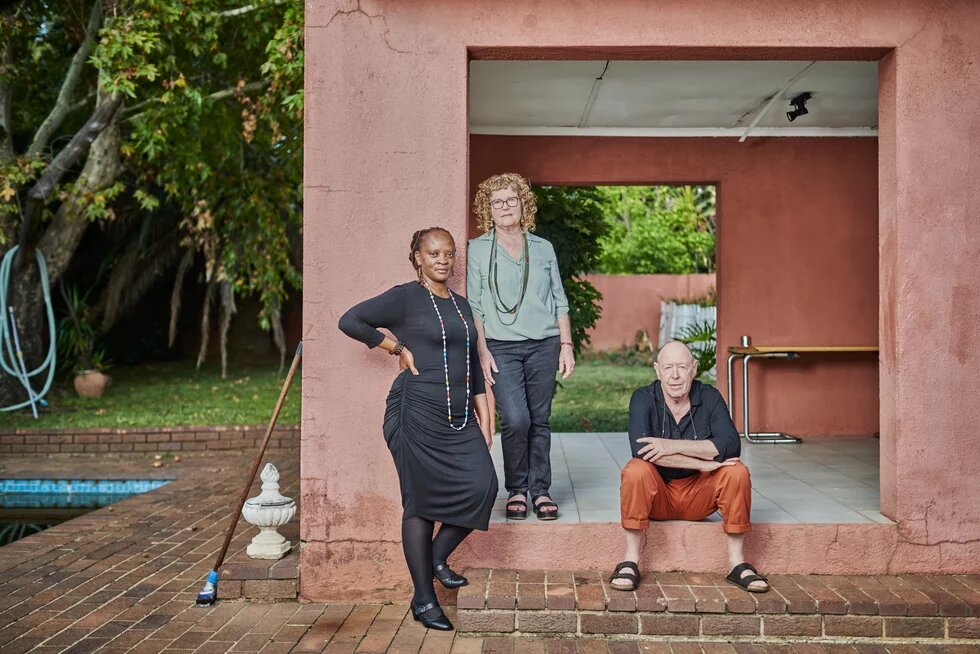Faced with the bleak future of AI-generated imagery, film, music and almost any other creative endeavour that you can imagine, there is one discipline that should endure...stories of real human experiences.

At this time we cannot generate a photograph of a person reflecting on their own life-changing ordeals, we cannot ask AI to dictate the story of a real memory, and we cannot digitally implant empathy into the people who connect with these stories. Not yet anyway.
And so, in a world saturated with increasingly artificial content, real human stories are vital.
In 2016 the Life Esidimeni psychiatric care hospital was closed down and over a thousand patients were moved to other facilities. Many of the new facilities were ill-equipped to deal with the patients and the process was rushed and dangerously mismanaged. The tragic result was that 144 people lost their lives and over 1,400 patients were exposed to human rights violations.
As with any tragedy, it is not just the victims who are impacted. The families of many of the patients suffered horrific trauma when they could not locate their loved ones, having to travel long distances with the hope of finding them and bringing them to safety.
Over the years since the tragedy, there have been several court hearings to deal with the impact, including an arbitration case in 2017 which brought about compensation for the families and a criminal inquest in 2021 which is still ongoing.
But this story is not about the horrific events of 2016 and the ongoing injustice of reparations. This story is about the need for victims to be seen, represented and remembered in a world that so quickly moves to forget.
In 2019 writer Harriet Perlman and photographer Mark Lewis with the support of Cassey Chambers from SADAG teamed up with Christine Nxumalo, who lost her sister in 2016 and was one of the members of the Life Esidimeni Family Committee to produce a series of stories that would maintain the momentum from the arbitration hearing and keep the stories of the victims in the minds of the public.
They created a website in partnership with SADAG and SECTION27, that stands as an online memorial to the victims as well as an ongoing resource for information and assistance for those who need it.
"I think what came out of it was that all of the families needed a way to express their anger and frustration. Mark and Harriet with Cassey Chambers as a trusted ally represented that group of people who understood their stories and as a result they felt safe and therefore validated what they had gone through." - Christine Nxumalo
In creating the project they needed a vehicle to tell the stories of the lives that were lost and the relatives who were left behind. They asked each of the family members to choose a photograph of the loved one who had died and to reflect on the photograph itself, where and when it was taken and what it meant to them personally.
"During the arbitration, many families were deeply hurt that they were accused of abandoning their loved ones. We travelled to people’s homes to interview them and take the portraits. It was important, for these stories to provide clarity of where the clinics were located and how far people, often with no resources, had to travel to visit their loved ones.." - Harriet Perlman
Through this simple but effective storytelling technique they allowed the heartbreaking stories of loss, anger, betrayal and injustice to come through.
"We were reminding people that this tragedy was about real lives lost. But another angle that we mustn’t forget is that Life Esidimeni is an extraordinary story about people fighting back, organising and being helped by civil society." - Mark Lewis
This year a book will be published containing the stories that have been made so far, 40 are available on the website. But for Mark and Harriet, it still feels like there is work to be done. They want to find funding to tell the remaining stories, to honour those who died and to keep the events of 2016 in the minds of the South African public, as a way of ensuring that what happened at Life Esidimeni in 2016 can never happen again.
This story is one of a series of articles produced by The Actionists in collaboration with the Heinrich Boell Foundation's Cape Town office to highlight the incredible work of organisations and activists across South Africa in their pursuit of justice and equal rights for all.